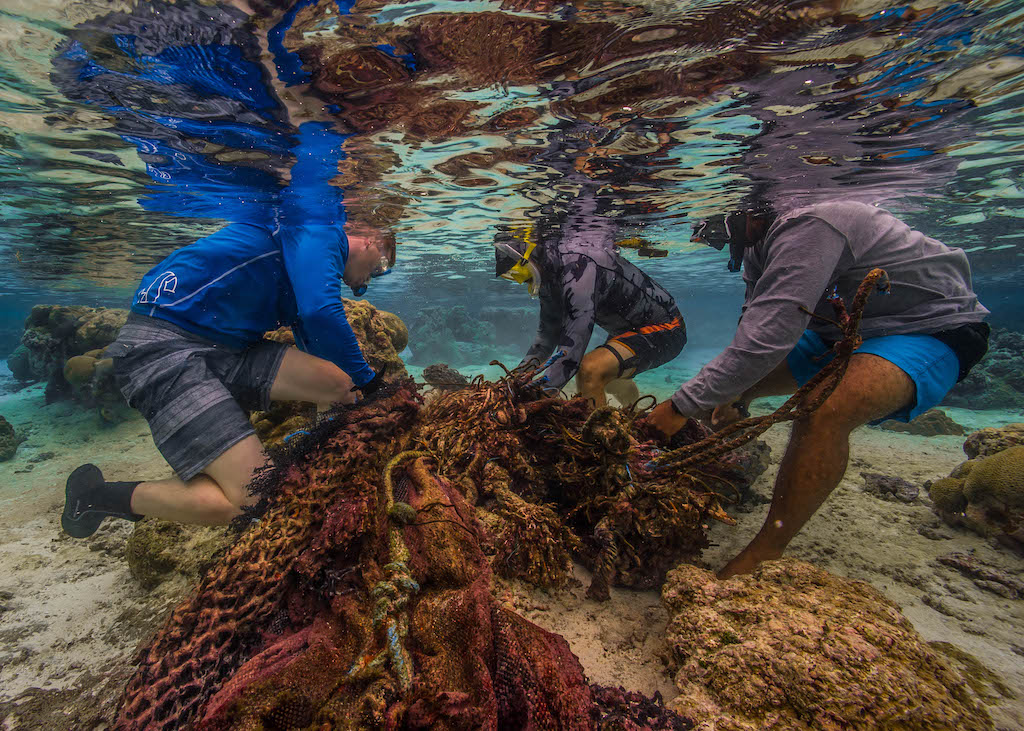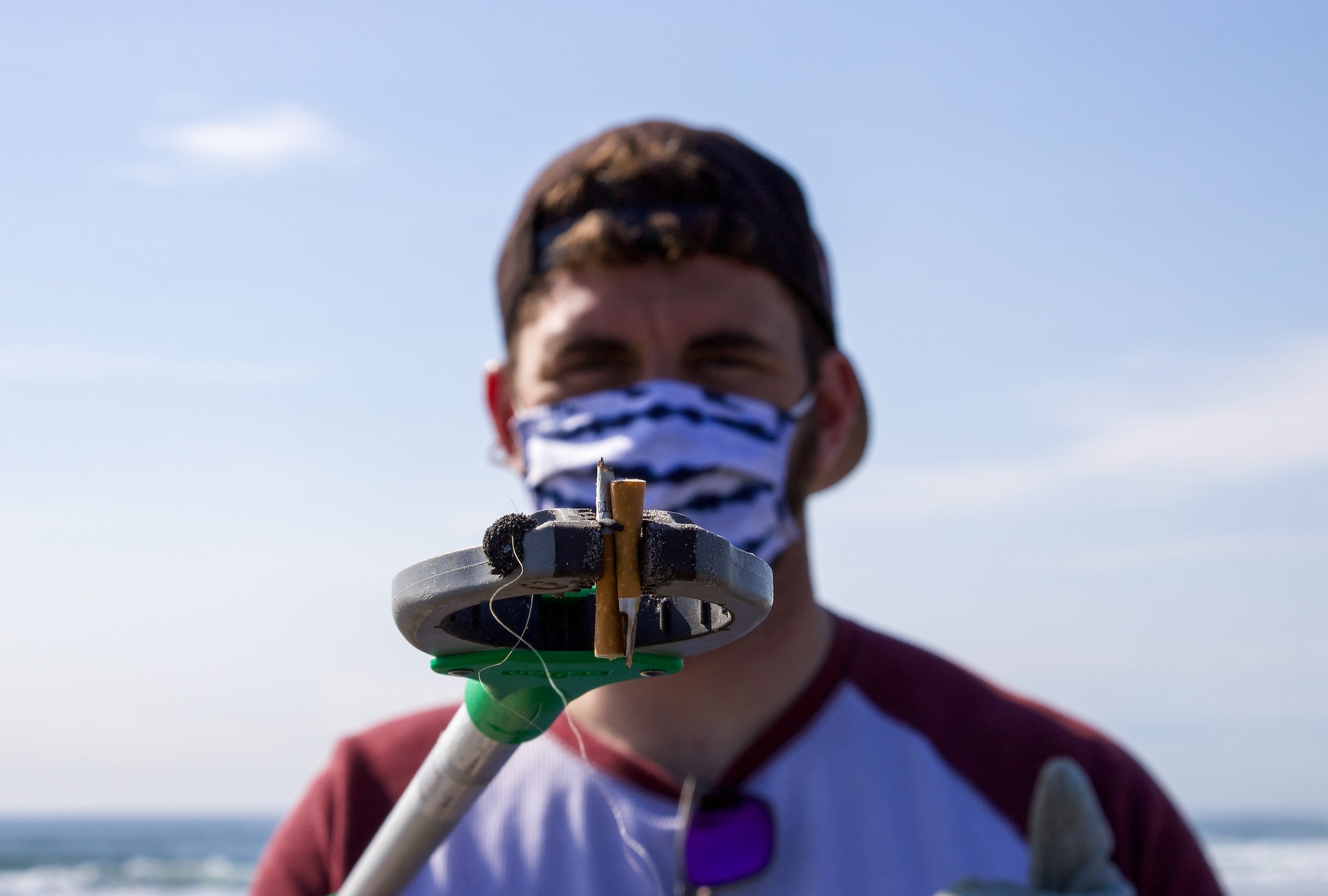The Importance of a Clean Ocean: the List of Reasons Why You Should Care
The ocean’s health is essential for all life on Earth, not only for marine wildlife.
Keeping our marine ecosystems clean from debris and pollution is probably one of the most important goals we should work towards, and it is definitely one we should all care about.
In the last decade, the discussion about the ocean has become more and more relevant. In this article, we will lay out some incredible facts about the ocean and explain why it is critical to take care of its health and prevent pollution from entering it.
Why is it Important to Have a Clean Ocean?
Our ocean functions as the Earth’s life support system, and to ensure a sustainable future, we must protect and preserve its waters and ecosystems from all types of pollution.
What exactly is the role of the ocean in supporting our entire planet’s life? Here are some incredible facts about our ocean that will help you realize how much we all should care.
- The ocean is the largest ecosystem on Earth and contains 94% of the entire planet’s wildlife. Ocean pollution has devastating effects on marine life and ecosystems. For example, plastic items can harm animals causing suffocation, entanglement, laceration, infections and internal injuries. 17% of the species affected by the presence of plastic in the ocean are on the International Union for Conservation of Nature Red List of Threatened Species. Also, floating debris helps transport invasive species, which leads to further threats for marine ecosystems.
- The Ocean covers more than 70% of the Earth’s surface and contains more than 97% of the water on the planet.
- The Ocean generate over half the oxygen we breathe on land. Tiny marine plants that live on the ocean’s surface, called Phytoplankton, produce roughly 50-80% of Earth’s oxygen through photosynthesis. The water also absorbs massive amounts of CO2, one of the major causes of climate change. In other words, the ocean is what we call a carbon sink, which means that it absorbs more CO2 than it releases.
- The ocean regulates the climate on a global scale. By moving heat around the planet, it maintains a critical balance: warmer currents move towards the Poles, where they cool and circle back, affecting our planet’s weather patterns. Cleaning the ocean and saving marine ecosystems is therefore of the utmost importance if we want to reduce the impact of climate change and work towards a more sustainable future.
- Ocean pollution also harms human beings. Microplastics, which have now entered the food chain, have been found to be carcinogenic and can affect our body’s endocrine system, causing serious disorders and disease. Toxic contaminants pose another health-hazard. They often accumulate on plastic’s surface and are then transferred to humans through the consumption of seafood.
Of course, there are many more reasons to care about protecting our oceans. For example, the ocean is essential for the transportation of goods around the world, for tourism and recreation and for global economic stability.

Actions studied to clean the oceans
There are many things we can do to clean our ocean and reduce the amount of pollution that enters it in the first place.
Here are some ideas that we can all put into practice in our everyday life. It surely takes effort to change one’s habits, but it is essential that we act now!
Reduce the Use of Plastic Items
The convenience single-use plastic brought to our lives over the past century has now become a nightmare for the health of our ocean. One of the most important resolutions you can make with yourself or within your family is to buy and use less disposable plastic items, which are responsible for 49% of all marine pollution.
Also, it is quite hard to retrieve plastic once it has entered the ocean, so the best we can do is try not to let it get there at all.
Here are some habits to inspire you:
- Swap single-use plastic bags for reusable ones.
- Stop using disposable plastic cups, plates, cutlery and bottles, bring your own!
- Try to avoid useless plastic wrappings and buy food and cleaning products in bulk. Many shops and supermarkets let you fill your own jars/bags or bottles.
- Choose metal or glass containers instead of plastic ones.
- Avoid buying beauty or cleaning products that contain plastic microspheres or microbeads.
Reduce Your Carbon Footprint
Carbon dioxide, or CO2, is the most well-known greenhouse gas. This gas is not only contributing to climate change and air pollution, but it is also making our oceans more and more acidic, which contributes to the loss of corals and the destruction of marine ecosystems.
Reducing our carbon footprint is certainly something we can all do to work towards a more sustainable future, both for the ocean and for the whole planet.
Here is what you can do:
- Instead of driving a car, ride a bike, walk or use public transportation.
- Save energy by turning off lights and devices you are not using.
- Instead of turning up the heating, put on an extra layer when you are home.
- Be vegan or at least try to reduce meat and fish consumption: industrial farming releases huge amounts of CO2 and methane.
Support Non-profit Organizations and Research
One of the main resources we can employ to stop ocean pollution and clean our ocean is research. By deepening our knowledge of the effects of the issue, we can start creating and implementing better policies for all, and help people make more informed choices, supporting the right legislation.
Many non-profit organizations rely on community engagement and donations to develop their projects and fund research. Here are some examples:

Clean-Ups
If you live by the ocean, by the sea or by a river, you can volunteer to pick up litter in your local community, thus removing plastic items from the waterways and preventing them from getting to the ocean at all.
You can join clean-up events, as many organizations have a planned calendar, or simply do it on the weekend on your own, maybe involving your friends and family!
New ideas to solve the problem
Here are some of the latest ideas and inventions humans thought about to solve the problem.
Clean the Ocean’s Garbage Patches
Recently, research has been focusing on designing boats and other systems to clean the ocean’s garbage patches, huge plastic accumulation areas found in the center of gyres.
The ocean’s gyres are rotating currents; there are five of them: one in the Indian Ocean, two in the Pacific and two in the Atlantic Ocean. At their center, there are garbage patches of varying sizes.
As we mentioned above, our efforts should go into trying to minimize the amount of plastic and other pollution getting into the ocean. However, collecting floating plastic waste before it sinks or gets broken down into microplastics is another essential action to concentrate on to clean our ocean.
There are many organizations working on this and developing new technologies, like The Sea Cleaners or The Ocean Clean Up.
Supporting them is a great way of doing your part for the ocean!
Eat Sustainable Fish (or No Fish at All!)
You can also do your part by only buying sustainably caught fish, although recent research shows that fishing is detrimental for the ocean, and maybe not eating any fish at all would actually be a lot better for marine ecosystems!

The full list of conferences
If you want to know more about the most recent developments in terms of new technologies and policies to clean our ocean, here is a list of the major conferences dedicated to the ocean, worldwide.
Our Ocean Conference 2022
13-14 APRIL 2022
Palau
Gordon Research Seminar and Conference — Ocean Biogeochemistry
30 Apr 2022 – 06 May 2022 • Castelldefels, Spain
This Seminar and Conference on Ocean Biogeochemistry is a unique forum to share and exchange new data and innovative ideas. Complex processes drive the ocean dynamics and are vital for the resilience of its ecosystems. This conference seeks “fundamental and interdisciplinary biogeochemical research that are critical to foster a holistic understanding of our past, present and future oceans.”
2022 Joint Aquatic Sciences Meeting
14 May 2022 – 22 May 2022 – Grand Rapids, Michigan, United States
JASM (the Joint Aquatic Sciences Meeting) is going to be “the world’s largest gathering of aquatic scientists, students, practitioners, resource agency staff, and industry representatives in history.”
Gordon Research Seminar and Conference — Ocean Mixing
04 Jun 2022 – 10 Jun 2022 – Mount Holyoke College, South Hadley, United States
This conference will discuss the impact of ocean mixing on the ocean and atmosphere systems, as well as on Earth and society in general.
Gordon Research Seminar and Conference — Ocean Global Change Biology
16 Jul 2022 – 22 Jul 2022 – Waterville Valley, United States
This forum will focus on “Integrating Environmental, Organismal and Community Complexity into Ocean Global Change Research”.
UN Ocean Conference
27 Jun – 1 Jul 2022 – Lisbon, Portugal
This year, the UN Ocean Conference will be co-hosted by the Governments of Kenya and Portugal, and it seeks to address many problems of our societies, which have been laid bare by the COVID-19 pandemic. During the conference, we will try to ideate major structural transformations and common shared solutions.
7th International Marine Debris Conference (7IMDC)
18 Sep – 23 Sep 2022 – Busan, Republic of Korea
This is one of the longest-running international conferences dedicated to the issue of marine debris and plastic pollution. Here, governments, industry, scientists and society will discuss the latest research, strengthen collaborations and find solutions to these global problems.
ICEOE 2022 — The 5th International Conference on Environment and Ocean Engineering
21 Oct 2022 – 23 Oct 2022 – Shandong, China
ICEOE is organized by Shandong University and is one of the leading forums for sharing and exchanging developments in Environment and Ocean Engineering; it will bring together leading scientists and researchers from around the world to discuss the latest topics in Environment and Ocean Engineering.
5th International Symposium on the Effects of Climate Change on the World’s Oceans
17-21 April 2023 – Bergen, Norway
ECCWO-5 brings together scientists from all over the world to understand climate effects on ocean ecosystems to define possible adaptation and mitigation measures; it further presents the latest information on how our oceans are constantly changing, what is at risk, and how to respond and work towards a more sustainable future.
References to understand the problem
https://cleanoceanaction.org/about-coa
https://oceana.org/living-blue-10-ways-you-can-help-save-oceans/
https://www.theseacleaners.org/
https://theoceancleanup.com/updates/why-we-must-clean-the-ocean-garbage-patches/



